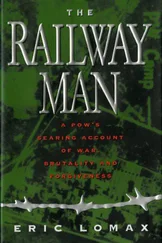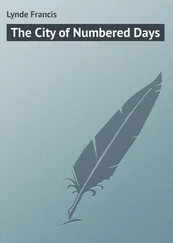Francis Lynde - The Real Man
Здесь есть возможность читать онлайн «Francis Lynde - The Real Man» — ознакомительный отрывок электронной книги совершенно бесплатно, а после прочтения отрывка купить полную версию. В некоторых случаях можно слушать аудио, скачать через торрент в формате fb2 и присутствует краткое содержание. Жанр: foreign_prose, на английском языке. Описание произведения, (предисловие) а так же отзывы посетителей доступны на портале библиотеки ЛибКат.
- Название:The Real Man
- Автор:
- Жанр:
- Год:неизвестен
- ISBN:нет данных
- Рейтинг книги:4 / 5. Голосов: 1
-
Избранное:Добавить в избранное
- Отзывы:
-
Ваша оценка:
- 80
- 1
- 2
- 3
- 4
- 5
The Real Man: краткое содержание, описание и аннотация
Предлагаем к чтению аннотацию, описание, краткое содержание или предисловие (зависит от того, что написал сам автор книги «The Real Man»). Если вы не нашли необходимую информацию о книге — напишите в комментариях, мы постараемся отыскать её.
The Real Man — читать онлайн ознакомительный отрывок
Ниже представлен текст книги, разбитый по страницам. Система сохранения места последней прочитанной страницы, позволяет с удобством читать онлайн бесплатно книгу «The Real Man», без необходимости каждый раз заново искать на чём Вы остановились. Поставьте закладку, и сможете в любой момент перейти на страницу, на которой закончили чтение.
Интервал:
Закладка:
"They?" he queried.
"Mr. Martin, the head bookkeeper. He said he'd been trying to get Mr. Williams, but the wires to the camp were out of order."
"They're not," said Smith shortly, remembering that Perkins had been talking from the camp to the Brewster railroad agent within the half-hour. "But never mind that: go on."
Again she let him see the piquant little grimace.
"You say that just as if you were Mr. Williams's assistant," she threw back at him. "But I haven't time to quarrel with you this morning, Mr. Real-name Smith. If you'll take your foot off the fender I'll go on up to the dam and find Mr. Williams."
"You couldn't quarrel with me if you should try," was the good-natured rejoinder, and Smith tried in vain to imagine himself taking his present attitude with any of the young women he had known in his cotillon days – with Verda Richlander, for example. Then he added: "You won't find Williams at the camp. He started out early this morning to ride the lower ditch lines beyond Little Creek, and he said he wouldn't be back until some time to-morrow. Now will you tell me what you're needing – and give me a possible chance to get my pay raised?"
" Oh! " she exclaimed, with a little gasp of disappointment, presumably for the Williams absence. "I've simply got to find Mr. Williams – or somebody! Do you happen to know anything about the lawsuit troubles?"
"I know all about them; Williams has told me."
"Then I'll tell you what Mr. Martin telephoned. He said that three men were going to pretend to relocate a mining claim in the hills back of the dam, somewhere near the upper end of the reservoir lake-that-is-to-be. They're doing it so that they can get out an injunction, or whatever you call it, and then we'll have to buy them off, as the others have been bought off."
Smith was by this time entirely familiar with the maps and profiles and other records of the ditch company's lands and holdings.
"All the land within the limits of the flood level has been bought and paid for – some of it more than once, hasn't it?" he asked.
"Oh, yes; but that doesn't make any difference. These men will claim that their location was made long ago, and that they are just now getting ready to work it. It's often done in the case of mining claims."
"When is all this going to happen?" he inquired.
"It is already happening," she broke out impatiently. "Mr. Martin said the three men left town a little after daybreak and crossed on the Brewster bridge to go up on the other side of the Timanyoni. They had a two-horse team and a camping outfit. They are probably at work long before this time."
The young woman had taken her place again behind the big tiller-wheel, and Smith calmly motioned her out of it.
"Take the other seat and let me get in here," he said; and when she had changed over, he swung in behind the wheel and put a foot on the clutch pedal.
"What are you going to do?" she asked.
"I'm going to take you on up to the camp, and then, if you'll lend me this car, I'll go and do what you hoped to persuade Williams to do – run these mining-claim jokers into the tall timber."
"But you can't!" she protested; "you can't do it alone! And, besides, they are on the other side of the river, and you can't get anywhere with the car. You'll have to go all the way back to Brewster to get across the river!"
It was just here that he stole another glance at the very-much-alive little face behind the motor veil; at the firm, round chin and the resolute, slaty-gray eyes.
"I suppose I ought to take you to the camp," he said. "But you may go along with me, if you want to – and are not afraid."
She laughed in his face.
"I was born here in the Timanyoni, and you haven't been here three weeks: do you think I'd be afraid to go anywhere that you'll go?"
"We'll see about that," he chuckled, matching the laugh; and with that he let the clutch take hold and sent the car rolling gently up to the level of the railroad embankment and across the rails of the main track.
On the right of way of the paralleling side-track he steered off the crossing and pulled the roadster around until it was headed fairly for the upper switch. Then he climbed down and recovered his coat which had been flung aside in the race with the train. Resuming his place behind the tiller-wheel, he put the motor in the reverse and began to back the car on the siding, steering so that the wheels on one side hugged the inside of one rail.
"What in the world are you trying to do?" questioned the young woman who had said she was not afraid.
"Wait," he temporized; "just wait a minute and get ready to hang on like grim death. We're going across on that trestle."
He fully expected her to shriek and grab for the steering-wheel. That, he told himself, was what the normal young woman would do. But Miss Corona disappointed him.
"You'll put us both into the river, and smash Colonel-daddy's car, but I guess the Baldwin family can stand it if you can," she remarked quite calmly.
Smith kept on backing until the car had passed the switch from which the spur branched off to cross to the material yard on the opposite side of the river. A skilful bit of juggling put the roadster over on the ties of the spur-track. Then he turned to his fellow risk.
"Sit low, and hang on with both hands," he directed. " Now! " and he opened the throttle.
The trestle was not much above two hundred feet long, and, happily, the cross-ties were closely spaced. Steered to a hair, the big car went bumping across, and in his innermost recesses Smith was saying to his immediate ancestor, the well-behaved bank clerk: "You swab! you never saw the day when you could do a thing like this … you thought you had me tied up in a bunch of ribbon, didn't you?"
If Miss Baldwin were frightened, she did not show it; and when the crossing was safely made, Smith caught a little side glance that told him he was making good. He jerked the roadster out of the entanglement of the railroad track and said: "You may sit up now and tell me which way to go. I don't know anything about the roads over here."
She pointed out the way across the hills, and a four-mile dash followed that set the blood dancing in Smith's veins. He had never before driven a car as fast as he wanted to; partly because he had never owned one powerful enough, and partly because the home-land speed laws – and his own past métier – would not sanction it. Up hill and down the big roadster raced, devouring the interspaces, and at the topping of the last of the ridges the young woman opened the small tool-box in the dividing arm between the seats and showed her reckless driver a large and serviceable army automatic snugly holstered under the lid.
"Daddy always keeps it there for his night drives on the horse ranges," she explained. But Smith was shaking his head.
"We're not going to need anything of that sort," he assured her, and the racing search for three men and a two-horse team was continued.
Beyond the final hill, in a small, low-lying swale which was well hidden from any point of view in the vicinity of the distant dam, they came upon the interlopers. There were three men and two horses and a covered wagon, as Martin's telephone message had catalogued them. The horses were still in the traces, and just beyond the wagon a long, narrow parallelogram, of the length and breadth of a legal mining claim, had been marked out by freshly driven stakes. In one end of the parallelogram two of the men were digging perfunctorily, while the third was tacking the legal notice on a bit of board nailed to one of the stakes.
Smith sent the gray car rocketing down into the swale, brought it to a stand with a thrust of the brakes, and jumped out. Once more the primitive Stone Age man in him, which had slept so long and so quietly under the Lawrenceville conventionalities, was joyously pitching the barriers aside.
Читать дальшеИнтервал:
Закладка:
Похожие книги на «The Real Man»
Представляем Вашему вниманию похожие книги на «The Real Man» списком для выбора. Мы отобрали схожую по названию и смыслу литературу в надежде предоставить читателям больше вариантов отыскать новые, интересные, ещё непрочитанные произведения.
Обсуждение, отзывы о книге «The Real Man» и просто собственные мнения читателей. Оставьте ваши комментарии, напишите, что Вы думаете о произведении, его смысле или главных героях. Укажите что конкретно понравилось, а что нет, и почему Вы так считаете.












